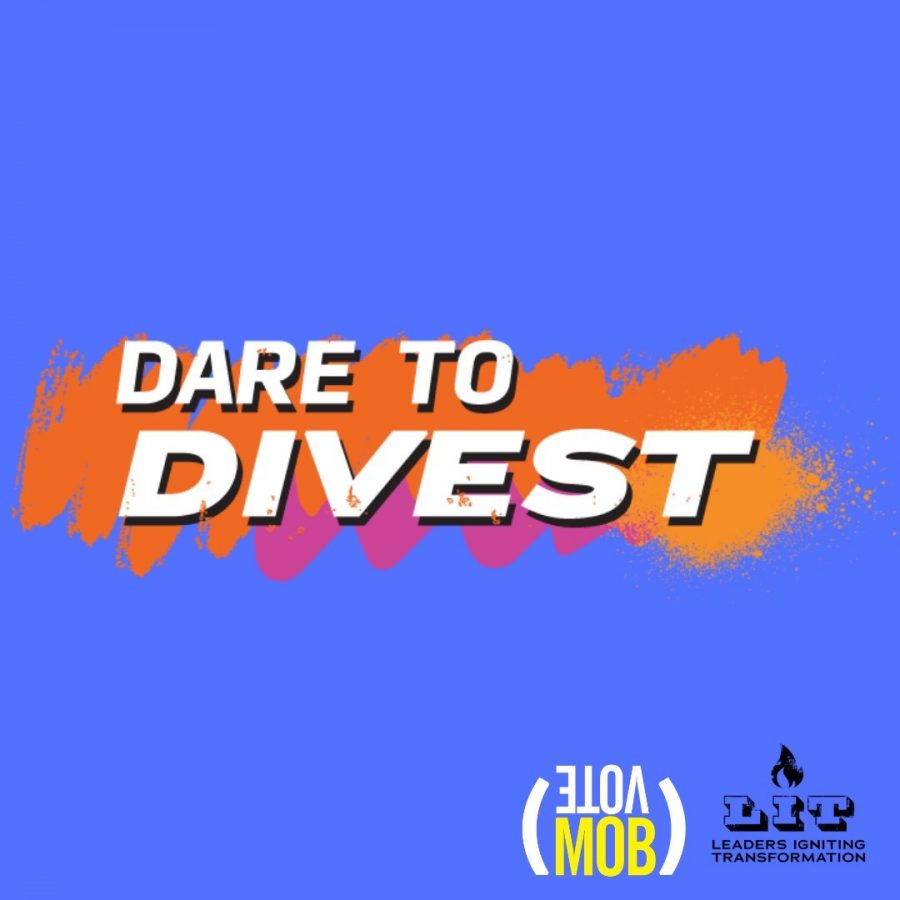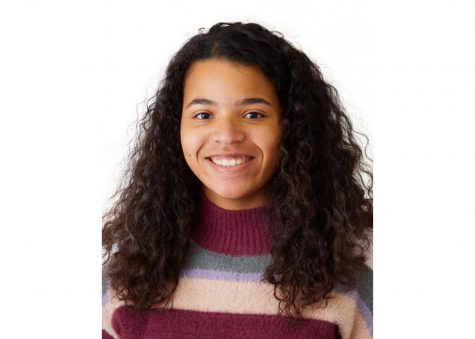Dare To Divest campaigners discuss releasing racially equitable demands for UWL and inspiring political change on campus
October 24, 2020
For the University of Wisconsin-La Crosse international business and economics major Sadie Szabelski, the deaths of Ahmaud Arbery, Breonna Taylor, and many others were a motivating factor for her activism. “I wanted to do something and I wanted to create long-lasting change. It was the first time I was like, ‘wow, we have been complicit in this society if we’re not doing something actively to change it,’” she said.
Soon after, Szabelski joined Leaders Igniting Transformation (LIT), a non-profit organization that “fosters the resilience and excellence of youth of color and engages youth in a spectrum of year-round civic engagement.”
UWL psychology major Breckin Sargeant joined the organization in February and helped students with voter registration. After the death of George Floyd and after nationwide protests began, Sargeant’s work for LIT changed to a racial equality focus. “It was really empowering and motivating to be around other students of color and people of color and just allies in general that worked with LIT. We spent a lot of the summer getting educated in the events of the world and thinking about how we could actually make systemic change in our communities,” she said.
Among the work LIT did to make systemic change was the Dare To Divest campaign. The project is a collaboration of efforts from regional members of LIT and regional members of VoteMob, a political organization also centered around civic engagement.
UW-Stout graduate and VoteMob regional organizer for UWL, Vaughn Hess said the campaign is geared towards students of color and others in the community. “With the organizations, with LIT and VoteMob, we kind of came together because we want to support activism for over-policing and commodification towards BIPOC populations in Wisconsin public schools and universities,” said Hess. “In order to do this, we must divest financial resources and invest in community care. Once we can do that, we can reimagine a safer, more supportive environment.”
On Oct. 12, the campaign released the first of their seven demands on their Instagram page, requesting that UWL “divest from the university campus police department.” According to the Dare To Divest Instagram account, the definition of divest is “taking money away from unnecessary aspects of police budgets and reinvesting into more beneficial resources for everyone.”
Szabelski said that divesting from the University Police would be a slow process and it would require community engagement. “Over time, we are slowly going to take the resources away from the University Police Department, but the essential purpose is that we can find different ways to engage in emergency response. We can do that as a community, but we have to build our community over time and that doesn’t look like stripping the department right away,” she said. “It’s a slow adjustment and we recognize that but it’s really about investing and making sure that our students are supported at all times. All students on our campus.”
The rest of the Dare To Divest demands are as follows:
“Demand #2: Develop a process to report UWL employees in positions of power for hate/bias violations.
Demand #3: Institute and mandate yearly trainings about bias, privilege, identity, and power.
Demand #4: Increase support for the campus climate response team.
Demand #5: Compensate all student employees with a livable wage of at least nine dollars per hour.
Demand #6: Pay students for appearances in UWL promotional materials.
Demand #7: Establish and maintain additional full-time staff positions dedicated to engagement and retention of marginalized students.”
There are ongoing Dare to Divest campaigns on other UW campuses and the demands listed above are specific to UWL.
Spanish education major at UWL and VoteMob representative Alex Jeske said they believe protesting hasn’t made enough change. “Protesting is something that has been in existence for a very long time and it is clear that with protesting, there has not been as much change as people would like to see and that there needs to be,” they said. “And so, given the political climate that we are in, and the racial injustices that have recently come into light, I think it is fair to demand these things when people’s lives are on the line and when people are being treated unjustly.”
Sargeant said the act of making demands is direct and specific, which can be more difficult when engaging in protests. “With protests, you can protest an event that happened or something that is happening on your campus that you’re not happy with but with demands, you get to be specific about what is wrong and how you want them to fix it. I feel like it is a little more to the point,” she said. “I understand how demands could seem intense or harsh, but with issues like racial justice and stuff like that, you need to be harsh and you need to be straightforward a lot of the time.”
Szabelski said demands also allow activists to be proactive about injustice. “The only time that we do see change is when people are being critical and are talking to those in power and saying, ‘hey, let’s work together,’” she said. “In order to achieve racial justice, we have to be anti-racist, we have to be doing those action steps and we have to get our community and participate together. [Demands] can be open, they can be adaptable, they can be realistic but we need a framework and we need to start that process now.”
Sargeant said that she hopes the university takes the Dare to Divest campaign seriously. “A short-term goal that I have for this campaign is just for our demands to be taken seriously and to be looked at by the administration that we are sending it too and start the process of actually making the changes on campus because it’s gonna take a long time and take a lot of resources and support from students and faculty.”
According to Sargeant, her long-term goal is to help students think critically about racial equity and to limit complacency. The representatives from the campaign hope to achieve this by creating a student organization for LIT and VoteMob. Sargeant said an organization called Leaders Igniting Transformation should be available for students to join within the next month.
Szabelski said that she does not want the effects of the COVID-19 pandemic to deter from engaging in social justice activism. “I don’t want folks to feel as if because the circumstances are different that we need to halt the progress because people have been doing this fight way before we even got to this university. We need to continue to propel this movement forward and see some change on our campus.”
Sargeant also said she wants students to feel comfortable participating in the campaign and their organization. “We really want feedback from students as well because this isn’t just for us. We created the demands but we want to adapt them to everyone’s needs and everyone’s opinions at La Crosse. So, the more feedback we get the better because this is everyone’s campaign, not just ours.”
Students and community members are welcome to attend the Dare To Divest weekly meetings, which occur via Zoom, every Monday night at 7 p.m. The Zoom link can be found in the campaign’s Instagram bio (@daretodivest).
For more information about the campaign or to speak directly to a Dare To Divest representative, email the campaign at [email protected].
For more information about LIT (@lit_wi) and VoteMob (@votemob) specifically, visit their Instagram pages.







